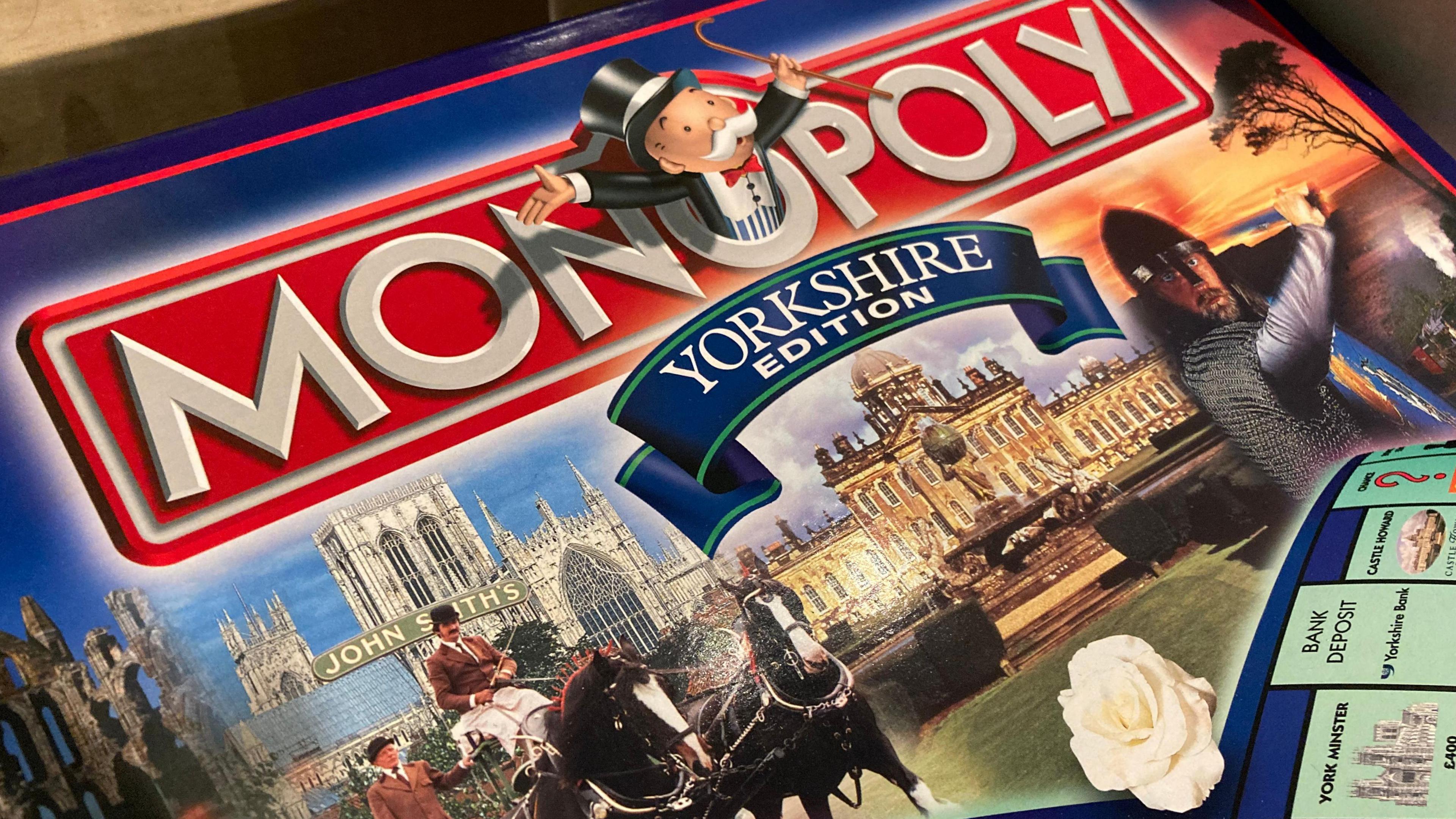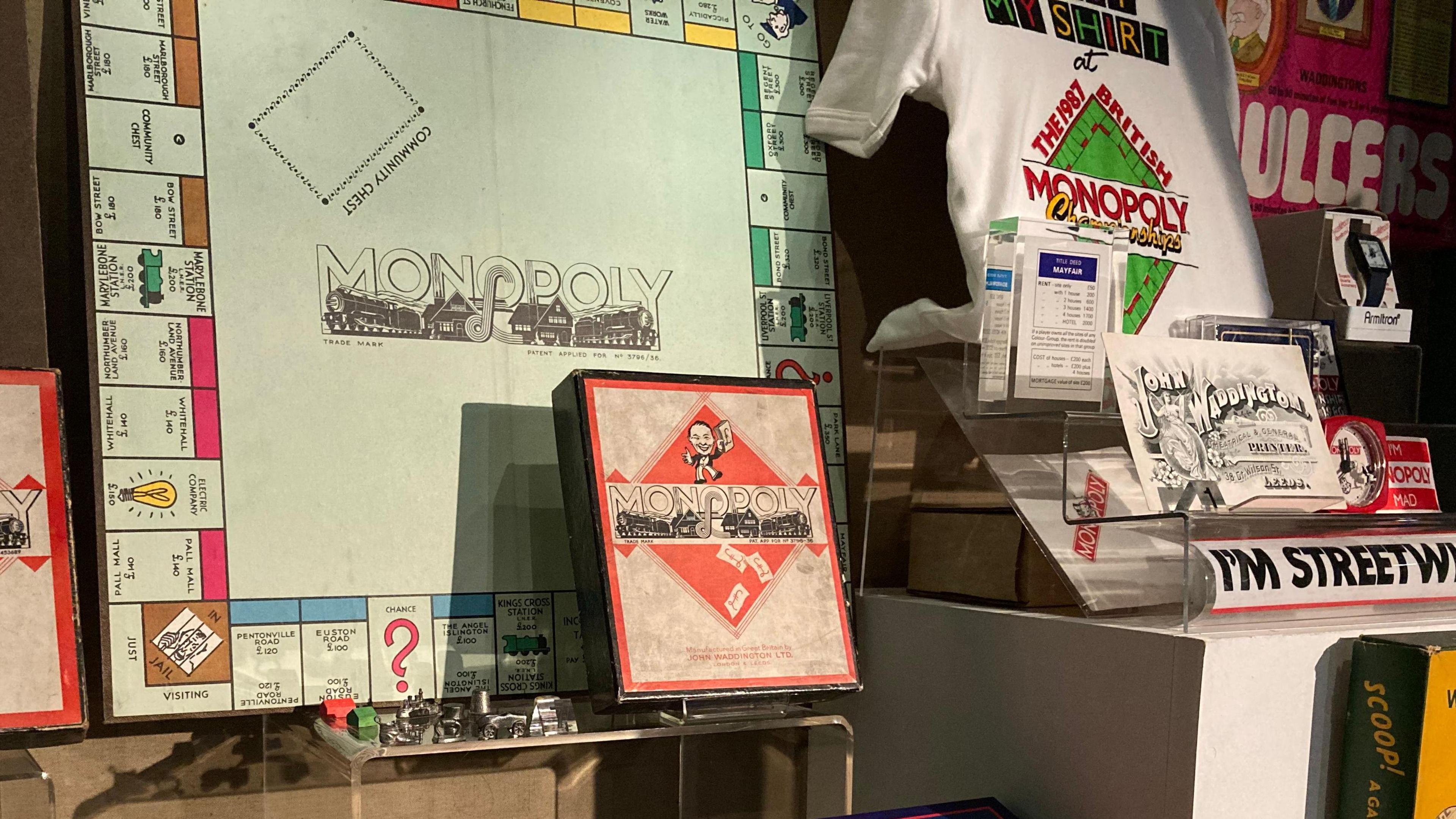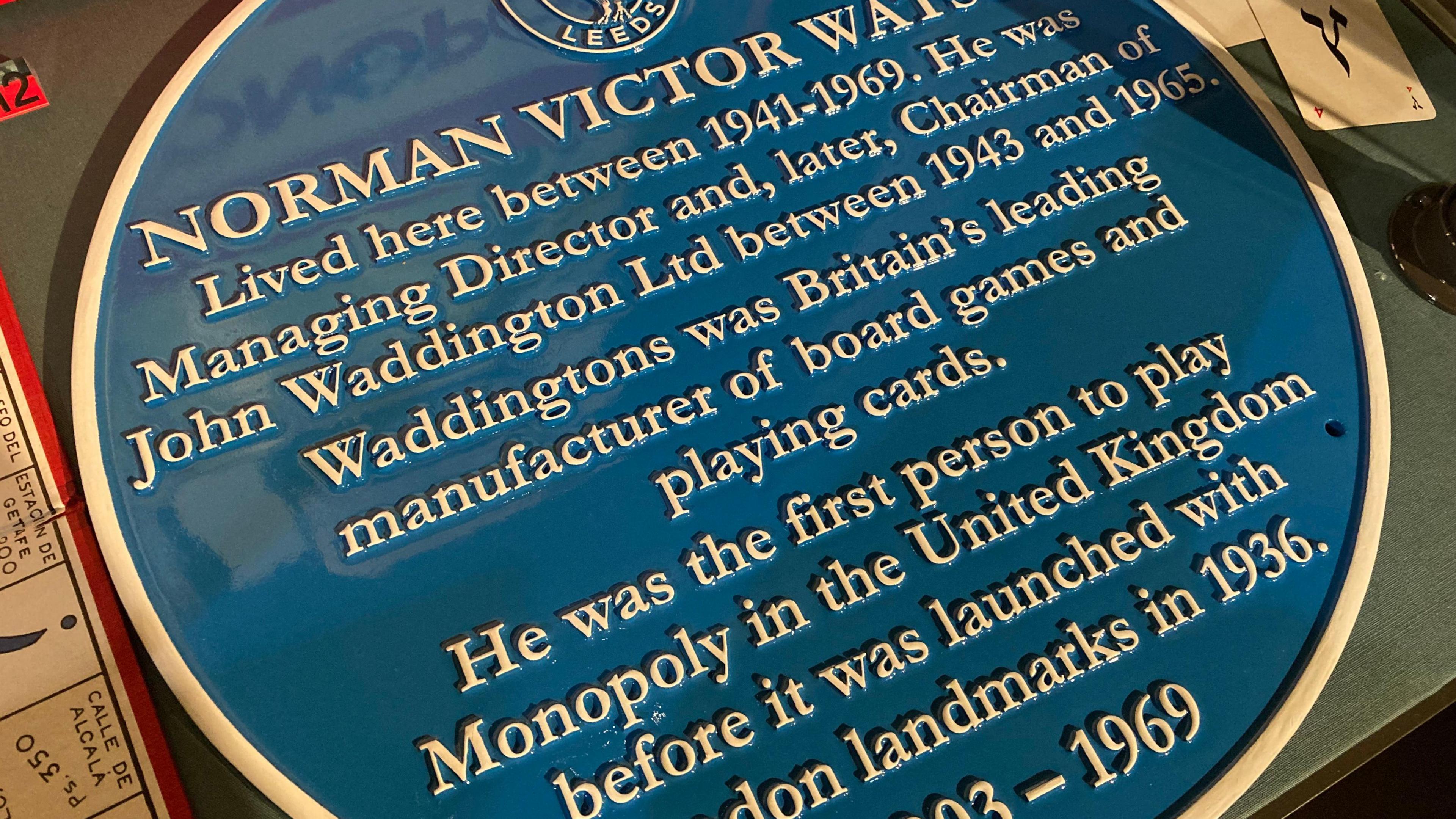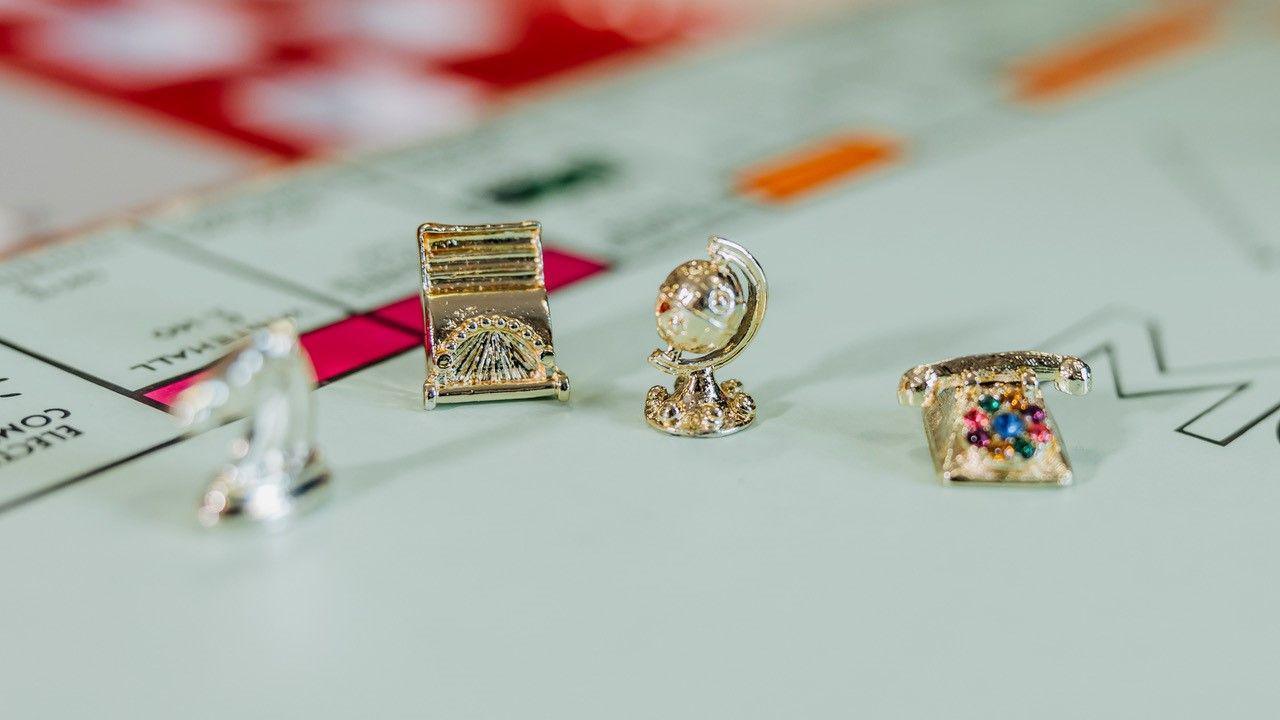Monopoly's historical links to Yorkshire suburb

A new Monopoly exhibition is on show at Leeds City Museum
- Published
The little-known story of how the UK's first ever game of Monopoly was played in a Leeds suburb forms part of a new exhibition.
The display at Leeds City Museum charts the history of the iconic family board game and its links with West Yorkshire.
The Leeds Civic Trust said the game's "strong associations" with Leeds "is something that deserves to be celebrated".
Among the items on display is a special Leeds edition of the game from 1993, which includes landmarks such as Vicar Lane and Crossgates station. Only 500 copies of the limited edition game were made.

The new Monopoly exhibition is open to the public until 1 September
In 1935, Monopoly was licensed for the first time in the UK, to Leeds firm, Waddingtons.
That year, Norman Victor Watson, managing director and, later, chairman of John Waddington Ltd, became the first person to play the game in the country - ahead of its launch - complete with London landmarks - in 1936.
Waddingtons Games was sold to Hasbro in 1994, with Monopoly now played by more than one billion players in 114 counties across the globe.
A blue plaque commemorating Mr Watson is on display as part of the current Leeds exhibition, and will subsequently be moved to his former home in Horsforth this September.
“It is amazing to think that the first game of Monopoly was played in Horsforth," said Leeds Civic Trust director Martin Hamilton.

Norman Victor Watson played the first UK game of Monopoly at his home in Horsforth
Much of the display has been donated by the Watson family, who had a three-generation connection with the company Waddingtons, spanning 80 years.
As well as the Leeds edition of the game, the Waddingtons and Monopoly Story display includes a 1960s deluxe set with silver and gold-cast tokens, and a 1940s wartime set which was created to aid prisoners of war in their escape from Germany.
Leeds City Museum principal keeper, Matt Story, said: "Waddingtons actually had a contract to help with the war effort. They were printing maps onto silk that were sewn into items of clothing, that would help prisoners of war escape.
"A version of Monopoly was made and printed with real money and maps to help prisoners," he added.
"It's a really interesting part of the whole history."

A special edition of Monopoly featuring silver and gold tokens is included in the City Museum display
The exhibition, which aims to be both educational and fun, marks the start of a Monopoly "takeover" of Leeds this summer.
Business group LeedsBID has organised a "first of its kind" immersive experience in the city, which rolls out between 27 July and 1 September.
The free, family-orientated experience aims to bring the property trading game to life, using key locations and landmarks around the city. According to LeedsBID, the game will challenge players to solve a series of visual, mathematical and word puzzles "in a bid to buy back the city".
Andrew Cooper, chief executive of LeedsBID said: "With its home in Leeds, Waddingtons was instrumental in bringing the London streets to many homes – we look forward to families seeing Leeds’ own Old Kent Road, Pall Mall and Mayfair.”
Follow BBC Yorkshire on Facebook,, external X (formerly Twitter), external and Instagram., external Send your story ideas to yorkslincs.news@bbc.co.uk.